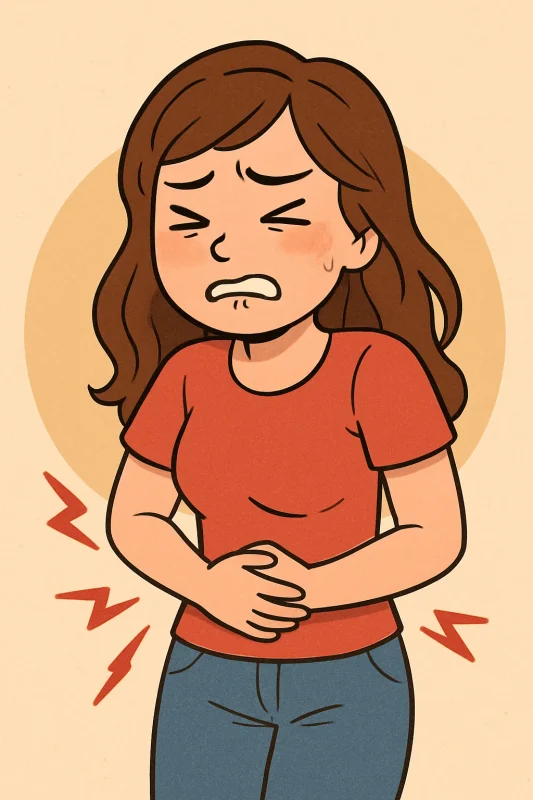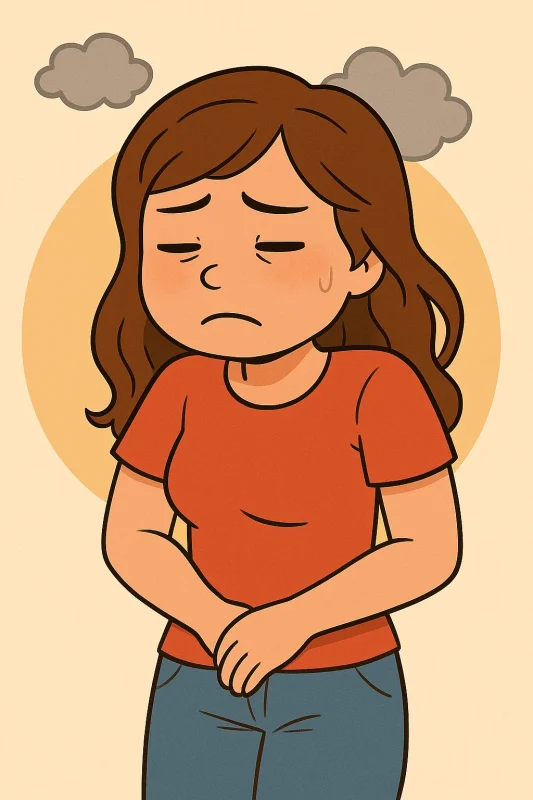🩸 The Four Phases of the Menstrual Cycle
Understanding Your Body
One Phase at a Time
Periods aren’t just about the bleed — your body goes through an incredible cycle each month, guided by shifting hormones and powerful biological changes. Understanding what’s happening in each phase can help you feel more connected, prepared, and empowered to work with your body, not against it.
Let’s break down the four phases in a way that’s easy to follow, relatable, and grounded in what real women experience.

🌧️ Phase 1: Menstrual Phase (Days 1–5)
What’s happening:
This is when your period begins. The uterine lining is shed because pregnancy hasn’t occurred, and estrogen and progesterone levels are at their lowest. It’s completely normal to feel tired, tender, emotional, or just “meh” during this time.
You might feel:
Cramps and bloating
Lower energy and mood
Need for rest, comfort food, and space
How to support yourself:
Gentle movement like stretching or walking.
Heat packs and herbal teas.
Rest without guilt — your body’s doing big things!


🌱 Phase 2: Follicular Phase (Days 6–14)
What’s happening:
After your period ends, your body starts prepping for ovulation. The pituitary gland releases Follicle-Stimulating Hormone (FSH), helping follicles (each holding an egg) to develop. Estrogen levels begin to rise, which thickens the uterine lining and boosts your energy.
You might feel:
Clearer thinking, more motivation
Brighter mood and creativity
Increased energy and social vibes
How to support yourself:
Set goals, plan, and get moving
Eat nutrient-dense foods to fuel your rising energy
Try new workouts or social catch-ups
🔥 Phase 3: Ovulation (Around Day 14)
What’s happening:
Your estrogen peaks and triggers a surge of Luteinizing Hormone (LH), which causes your ovary to release a mature egg. This is your fertile window — and the egg will live for about 24 hours, waiting for possible fertilisation.
You might feel:
Heightened libido
Increased confidence and glow
Mild pelvic twinges (called mittelschmerz)
How to support yourself:
Listen to your body — enjoy the boost in desire and energy.
Stay hydrated and nourish with zinc, omega-3s, and greens.
Track signs like cervical mucus and basal body temp if you’re monitoring fertility.


🌙 Phase 4: Luteal Phase (Days 15–28)
What’s happening:
The released follicle becomes the corpus luteum, which produces progesterone. This hormone keeps your uterine lining stable in case of pregnancy. If there’s no fertilisation, progesterone drops — and your next period begins.
You might feel:
PMS symptoms (bloating, mood swings, cravings).
Lower motivation and social energy.
Increased need for rest and reassurance.
How to support yourself:
Prioritise sleep and gentle self-care.
Magnesium-rich foods can help with cramps and anxiety.
Reduce caffeine and alcohol to ease PMS symptoms.
The Hormones Behind the Scenes
Hormone | Role in the Cycle |
|---|---|
| Estrogen | Rises in the follicular phase, peaks at ovulation. Supports mood, energy, and lining growth. |
| Progesterone | Dominant in the luteal phase. Prepares the uterus for pregnancy and influences mood, sleep, and digestion. |
| FSH | Stimulates follicle development early in the cycle. |
| LH | Triggers ovulation mid-cycle. |
These hormones impact more than just your period — they affect mood, energy, focus, libido, and even your skin. Understanding them helps you make sense of why you feel the way you do.
Tracking Your Cycle: Why It Matters
Knowing your cycle helps you:
Understand patterns in mood and energy
Manage PMS and physical symptoms
Improve fertility awareness
Advocate for your health with your doctor
💬 Everyone’s cycle is unique. It can vary with stress, diet, exercise, or health conditions like PCOS or endometriosis.
❤️ You’re Not Alone
Whether your cycle is regular, irregular, painful, easy, or somewhere in between — you’re not broken, and you’re not alone.
We’re here to help you tune in, take charge, and make your menstrual health something you understand — not fear.
